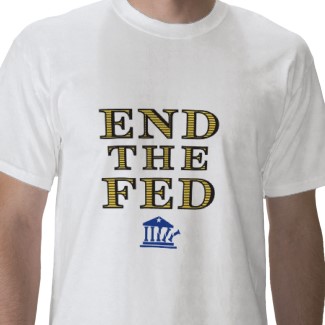The Moral Hazard of Regulation
by Ron Paul
Since the bailout bill passed, I have been frequently disturbed to hear “experts” wrongly blaming the free market for our recent economic problems and calling for more regulation. In fact, further regulation can only make things worse.
It is important to understand that regulators are not omniscient. It is not feasible for them to anticipate every possible thing that could go wrong with whatever industry or activity they are regulating. They are making their best guesses when formulating rules. It is often difficult for those being regulated to understand the many complex rules they are expected to follow. Very wealthy corporations hire attorneys who may discover a myriad of loopholes to exploit and render the spirit of the regulations null and void. For this reason, heavy regulation favors big business against those small businesses who cannot afford high-priced attorneys.
The other problem is the trust that people blindly put in regulations, and the moral hazard this creates. Too many people trust government regulators so completely that they abdicate their own common sense to these government bureaucrats. They trust that if something violates no law, it must be safe. How many scams have “It’s perfectly legal” as a hypnotic selling point, luring in the gullible?
Many people did not understand the financial house of cards that are derivatives, but since they were legal and promised a great return, people invested. It is much the same in any area rife with government involvement. Many feel that just because their children are getting good grades at a government school, they are getting a good education. After all, they are passing the government-mandated litmus test. But, this does not guarantee educational excellence. Neither is it always the case that a child who does NOT achieve good marks in school is going to be unsuccessful in life.
Is your drinking water safe, just because the government says it is? Is the internet going to magically become safer for your children if the government approves regulations on it? I would caution any parent against believing this would be the case. Nothing should take the place of your own common sense and due diligence.
These principles explain why the free market works so much better than a centrally planned economy. With central planning, everything shifts from one’s own judgment about safety, wisdom and relative benefits of a behavior, to the discretion of government bureaucrats. The question then becomes “what can I get away with,” and there will always be advantages for those who can afford lawyers to find the loopholes. The result then is that bad behavior, that would quickly fail under the free market, is propped up, protected and perpetuated, and sometimes good behavior is actually discouraged.
Regulation can actually benefit big business and corporate greed, while simultaneously killing small businesses that are the backbone of our now faltering economy. This is why I get so upset every time someone claims regulation can resolve the crisis that we are in. Rather, it will only exacerbate it.
- Ron Paul Makes Sense Because Freedom Makes Sense I was talking to my brother the other day about Democrats and Republicans. We were...
- Free Trade Ron Paul is a proponent of free trade and rejects protectionism, advocating “conducting open trade,...



































[...] to pass off Ron Paul's words as your own. Kinda confusing. I'll respond to the content tomorrow. http://www.ronpaul.com/2008-11-10/ro…-things-worse/ GS_googleAddAdSenseService("ca-pub-9888434945255495"); GS_googleEnableAllServices(); [...]
[...] he’s running for president, and he’s not his son, but still this doesn’t make an ounce of sense (emphasis added): Many people did not understand the financial house of cards that are [...]
[...] administration (by Robert Rubin et al.) contributing to the financial crisis. And Ron Paul writes, Why More Regulation Makes Things Worse: The other problem is the trust that people blindly put in regulations, and the moral hazard this [...]
[...] To champion regulation as the method by which we enjoy competition and innovation is to deny the moral hazard that exists as a result of such regulation, to say nothing of the oppressive burdens such [...]
[...] To champion regulation as the method by which we enjoy competition and innovation is to deny the moral hazard that exists as a result of such regulation, to say nothing of the oppressive burdens such [...]